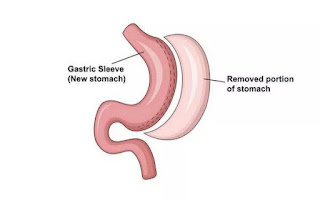Unlocking a Healthier Future: FAQs regarding Gastric Sleeve Surgery
Our world has changed in ways we couldn't have imagined. Technology is rapidly advancing and more people are living a healthier lifestyle than ever before. It's unsurprising that more people want to make their bodies healthier.
One of the most popular surgeries today is gastric sleeve Melbourne surgery, which helps people lose weight by reducing the size of their stomachs. In this blog post,
I'll answer some common questions about gastric sleeve surgery that you may have been wondering about yourself!
Who can qualify for gastric sleeve surgery?
If you're at least 18 years old, overweight or obese, and have tried to lose weight by dieting and exercising but haven't been able to reach your goals, gastric sleeve surgery may be right for you.
You'll need to have a body mass index (BMI) of 40 or greater before surgery--and the higher it is, the better chance you'll have of losing weight after surgery. A BMI calculator can help determine if this procedure is appropriate for your needs.
Can a diet help me lose weight before I get gastric sleeve surgery?
- It's important to note that dieting is not the same as surgery. Dieting can help you lose weight, but it's not a long-term solution and doesn't address your underlying health issues. Surgeons recommend gastric sleeve Melbourne surgery because it's more effective than other procedures, such as gastric bypass and lap band surgery.
Can I have the procedure if I am over 65 years old?
If you are over 65, there are a few things to consider before deciding whether or not to have gastric sleeve surgery. First, if you are eligible for Medicare or Medicaid (or another government-funded insurance plan), that program will likely cover the procedure.
Second, if your income is low enough and/or if your assets do not exceed specific thresholds set by each state, then there is also a chance that your health plan may cover some or all of the costs associated with your weight loss surgery procedure.
Thirdly--and this is important--if neither option above applies to you (i.e. if neither Medicare nor Medicaid covers gastric sleeve surgery), then we strongly recommend considering high deductible health plans instead of traditional health insurance plans because they often offer lower premiums while still providing coverage in case something goes wrong during an elective procedure like gastric sleeve surgery.
Will my insurance pay for weight loss surgery?
The answer to this question can vary greatly depending on your insurance company, and many factors influence whether or not insurance will cover gastric sleeve surgery.
Insurance companies may require you to try other weight loss methods first, like dieting and exercise.
Some insurance companies may require a doctor's referral before they will cover the cost of gastric sleeve surgery for you.
If your insurance does pay for gastric sleeve surgery, only part of the procedure will likely be covered--you might have to pay some out-of-pocket expenses as well
Conclusion
We hope this article has helped you understand how gastric sleeve Melbourne surgery works, what it can do for your health, and whether or not it's the right option. If so, contact experts today to schedule your consultation.




Comments
Post a Comment